
I’ve wanted to get published by one of the major publishing houses since the very first time I sat down to write the first draft of my book. I was also open to one of the medium-size ones. Honestly, even an independent press would have been fine. However, after a few years of the constant roller-coaster of querying, getting interest and then ultimately being rejected — I gave up. Only I couldn’t really give up because I’m an artist and part of that is the need to put my work out there. So, I decided to self-publish.
Now, before you quip, “maybe you’re just a bad writer,” I’d like to argue that I’m not. The particular book I’m basing this post on is an adult novel that I would classify as literary fiction in the vein of Chimamanda (an actual comparison I use when querying because I like to live life dangerously). The novel was longlisted for the Dinaane Debut Fiction Award in 2020. Yes, it’s a competition set in South Africa which, some might argue, is a small literary scene than say, the U.S, but I would strongly argue for the stiffness of that competition, having experienced first-hand the calibre of entries. Still, most of you reading this will just have to take my word for it – I am a good writer.
Publishing is a white industry. This is not a claim, it is a fact. The numbers are quite staggering. According to the 2019 Diversity Baseline Survey, 76% of publishing staff, review journal staff, and literary agents identified as white. Of the rest, Asian/ Native Hawaiian/ Pacific Islander made up 7%; Hispanic/ Latino/ Mexican made up 6%; Black/ African American made up 5%; and biracial/multiracial made up 3%.
It’s no wonder then just how little practiced ‘diversity and inclusivity’ are, given how loudly they are touted. Agents and editors talk about wanting to represent more ‘own voices’ – a truly incredible initiative that has seen the industry take some important steps in the right direction, but only actually take on a very very small number of said books and authors.
Why is that? Are agents just giving underrepresented authors lip service or are they powerless to effect any real change in a system not designed to allow it?
For a long time, I believed that literary agents were the bad guys. They were the ones standing between me and all my author success goals. I know better now. While it’s true that they were the gatekeepers, they were simply the unfortunate mouthpiece tasked with uttering the ‘no’ coming from the entire industry. If I had made it past the agent hurdle, that agent would then have to find an editor who wanted to buy my book. Then that editor would have to fight for that book with their sales and marketing team – because a marketing budget makes all the difference, particularly when you’re breaking out as a new author. At each of these steps, underrepresented authors are at a disadvantage because future predictions are based on previous performance.
Success in publishing is measured in book sales, so if an agent or editor feels doubt in their ability to sell your book – which they are likely to feel if they have never sold a book like it in the past, which is usually the case with underrepresented authors – they will not take on your book. They would love the book, and pass. They would wish you well on your journey to publishing, and pass. They will remind you that “it only takes one agent or editor to say yes” so you shouldn’t give up, and pass.
Beyond the attitude of individual editors and agents, black stories come up against certain biases and assumptions that are endemic to the industry itself. There’s the “black stories are different from white stories” spiel, which sometimes goes hand in hand with the “black authors only write black stories” cliché. This snowballs into the “black stories only appeal to black people but white stories appeal to everyone” mantra. All of this adds u to the most fundamental of all these assumptions: “black people don’t read. There is no black consumer base, so they’re not worth being marketed to the same way white people are”.
For me, this brings up the question – what is a black story, anyway? And while we’re at it, what is a white story? Is it based on the color of the characters? Is it the culture portrayed? And is it wise to diminish people – both the characters and the readers – to such flat, two-dimensional labels?
My hope is that all of this is as ridiculous to you as it is to me. But ridiculous and bizarre as they are, these assumptions build upon each other and result in the further marginalization of non-white stories and their authors. They dictate the flow of publishing dollars towards white-centered stories, which, in turn, enjoys more visibility and, thus, sales. So, in the end, tragically, some of these ridiculous assumptions prove true. So-called “white stories” do sell more and are safer to invest in. This gives the powers that be the right to feel justified in making these race-based decisions (because now they are numbers-based) in the first place without having to take accountability for the role they played in making them so. Don’t ask me what came first. Quite frankly, I don’t know, and I’m not sure it matters anymore.
Centering whiteness in publishing may feel like it is in service of white readers, but it fails them too. These biases inadvertently imply that white readers are less capable than non-white audiences at understanding and enjoying stories not centered around their lived experiences. They imply that white audiences are the dumbest and/or the laziest of readers who shouldn’t be offered South American, Asian, Middle Eastern, or African stories because they simply wouldn’t understand any of the nuances nor task themselves with trying.
The way these biases play out in day-to-day life can be seen in a hypothetical book marketing meeting. Someone might describe a book about a white protagonist as “a book about a girl growing up in Chicago.” The same person will then describe a book about a black protagonist as “a book about a black girl growing up in Chicago.” This might seem to make perfect sense to you, it does to most people, but therein lies the problem. The white girl gets to just be a girl, but the black girl needs a qualifier. The implication is that white is the default and black is “other.” This simple bias colors every aspect of publishing. Being non-white puts us on the outside, trying to work our way into a system not designed to let us in.
Biases exist in every industry. There is a reason that R&B and hip hop have been marketed to me essentially from birth. I even understand the value of creating and using these basic categories for the purposes of simplifying marketing efforts. They can and often do work – I, for one, like R&B and hip hop, but it’s not all that I like. Breaking out of the default algorithms assigned to each of us, should we wish to, falls on us. The music industry isn’t going to assume I have a broad appreciation of music unless I take the steps to make it known, and doing so is easier in music. The accessibility of platforms like YouTube and the fact that a song can be consumed in under 4 minutes makes it easy to sample different kinds of music. Do this enough times, and the algorithms that funnel music to you begin to change to reflect these choices.
The same issue is plaguing the movie industry. When’s the last time you could tell a film company spent major (I’m talking blockbuster level) marketing dollars for a movie that didn’t feature a superhero? In almost every industry, the powers that be are doing their absolute best to minimize losses. That means only investing in proven winners and/or works with a concept that is similar enough to something that worked before. The trouble with using data from the past to predict the future is that nothing new can be created. The result? At the highest level, there’s nothing interesting to read, watch, or listen to. They are still there, of course – artists will always exist, and they will always continue to create because they must – but we won’t be able to find them because all the marketing dollars and, thus, the spotlight are taken up by some bland and hollow “art” that we’ve already experienced before.
We are all shaped by the pop culture we consume. Our kids are, in profound ways, informed by the quality of the content they consume, from their worldview and outlook on life to their sense of self. We should all be incensed by the trend we’re seeing.
I’m an author, and I want to operate within a publishing industry that has space for me and my work. So, I have a vested interest in the direction that that industry swings. But even if all you do with content is consume it, you should want as wide a variety of good quality content as you can possibly get. It makes us all better. I understand that systems are difficult to change, but we can do more to help them.
Hopefully, at this point of the essay, you are wondering about what you can do. If so, great, because I have an answer. Seek out diverse books and buy them. Refuse to be dictated to by the “you’re [enter race] so read this [enter race] book” default algorithm. Therein lies the death of diversity and creativity. Help the industry decision-makers realize the importance of “other” books by impacting the only metric they care about – sales. At the end of the day, publishing is a business that is driven by profits. They will go where the money is. This gives us, the buying public, the power to dictate what is produced. We just haven’t organized that collective power very well, but it’s not too late. Vote with your wallet and buy a diverse book. Read it. If you like it, recommend it. Ask for it at your local library. Then repeat with another.
Acknowledge that some of us couldn’t endure the endless rejection of an industry not built for us. But we still love (and need) to write. Buy our self-published books. Seek out and buy from small presses. Normalize reading stories from a foreign point of view. Celebrate the amazing opportunity that allows you to see the world differently. This is the power and the joy of reading. We should all fight tooth and nail to keep it accessible to all.
Photo by 愚木混株 cdd20 on Unsplash


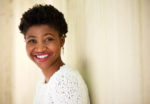
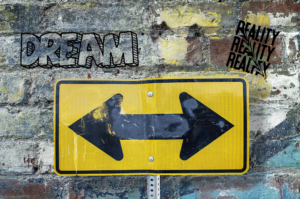
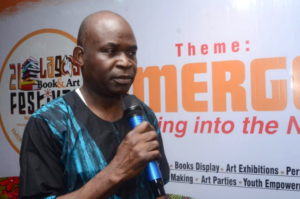
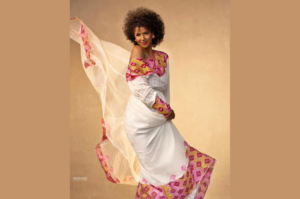
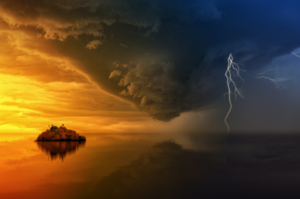

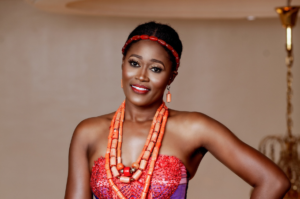

Umeoka Chimezie May 17, 2022 21:41
Breathtaking— and the movement begins with me.